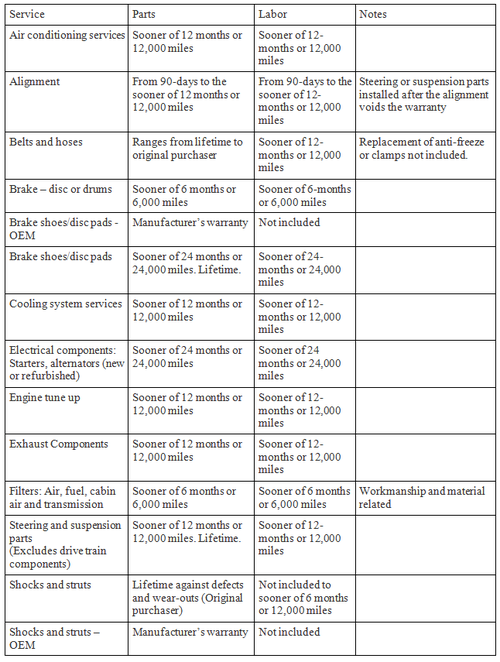Have you ever had to take your car back to a mechanic for a to fix a repair, only to be stuck with a new bill for services? You’re not alone. We see complaints all the time from vehicle owners whose repair jobs failed – and to make matters worse, the mechanic refused to cover the entire cost. The next obvious question is: Is this even legal? Unfortunately, it depends. Let’s take a closer look at this hot button issue behind the car repair warranty.
First, it’s important to understand that it’s entirely possible for recently replaced automotive parts to fail. It all depends on the quality of the part used, in addition to other factors.
If you ever find yourself in a situation where a recently-replaced part breaks, ask the repair shop the following (or better yet, find out before the repair!):
- Was the part new, used, or refurbished? You may have paid a significantly lower fee for a used or refurbished part, which could have contributed to its shortened life span.
- Was the part made by your vehicle’s manufacturer (OEM) or did it come from a third party parts maker(aftermarket)?
- Is it possible the part was installed incorrectly? This raises other issues with regard to the quality of service for installation, which can have an enormous impact on the longevity of a replaced part.
- Is the person who worked on your vehicle certified to perform the work they did? These may sound like “fighting words” but it’s a legitimate question that you should address.
Here’s something else you may not have considered that could leave the auto repair shop totally off the hook.
- Sometimes, other related parts can fail and damage a recently replaced part. We see this a lot in front-end suspensions, where the performance of the interconnected mechanical workings are only as strong as their weakest link. Many repair shops will make you aware of this prior to completing the repair. They’ll advise that you replace the other parts as well.
Your best bet to avoiding this kind of scenario in the future is to ask pertinent questions about the proposed work before any is done. It’s imperative that you understand what parts are being used. OEM parts usually cost a lot more than refurbished parts, but their quality is far greater.
Finally, find out what the shop’s car repair warranty is before you have any work done. Warranty policies can vary greatly from one service professional to another, as can warranties for different auto parts.
Here are some car repair warranty examples that we found that should be standard for independent and chain dealerships:
Exercise caution if you talk to a service professional that offers a warranty not included in the chart below.


